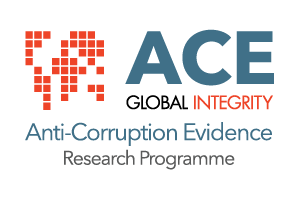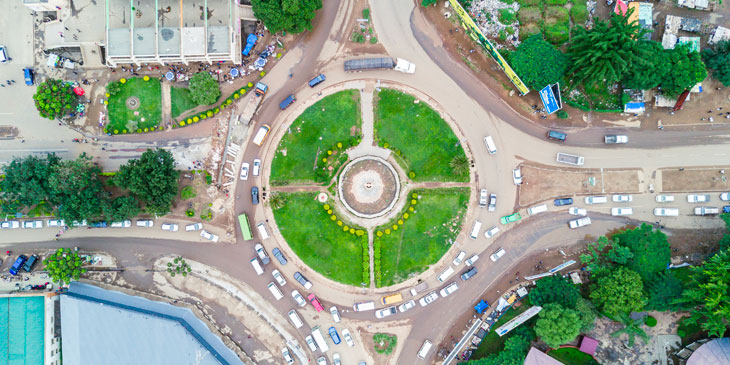A version of this blog was originally published on the African Centre for Cities website and GI-ACE
From 8 to 10 October 2019, the Cities of Integrity project – in partnership with the Centre for Urban and Regional Planning at the University of Zambia and the Zambia Institute of Planners (ZIP) – conducted a Qualitative Action Experiment (QAE) in Lusaka. The QAE was comprised of a public panel discussion and two-and-a-half days of training for practicing planners.
In this post, researchers Dorothy Ndhlovu, Gilbert Siame, and Laura Nkula-Wenz, reflect on the experiment.
The Qualitative Action Experiment (QAE) presented an exciting research opportunity to share insights on common corruption challenges in Zambian cities and towns and discuss the role professional planning can play in fostering transparency and furthering public accountability. The aim was to jointly explore the potential of and avenues for activating the professional integrity of urban planners through a targeted training and community building intervention that could help address the high and consequential corruption risks in local urban development.
The public panel discussion featured prominent personalities involved in anti-corruption activism, local governance improvement, planning practice in Zambia, and social advocacy for those who live in slums. Chaired by Cities of Integrity’s Co-Principal Investigator Gilbert Siame, the panel consisted of the following:
- Reuben Lifuka, Transparency International’s Vice Chair of the Board, and Zambian chapter president
- Cooper Chibomba, Zambia Institute of Planners (ZIP) president
- Local Government Association of Zambia representatives
- Peoples Process on Housing and Poverty in Zambia (PPHPZ) representatives
During the discussion, community members from the Zambian Homeless and Poor People’s Federation stressed the need to actively fight corruption in urban development. PPHPZ and the Federation of Slum Dwellers passionately reflected on the grave effects of corruption on the urban poor who cannot afford hefty bribes and are frequently excluded from accessing urban land and services. Other incisive submissions honing in on the multifaceted challenges of corruption were also made by the University of Zambia’s Dean of the School of Natural Sciences, a former Minister of Environmental Affairs, as well as environmental activists in attendance.
The panel confirmed that tackling corruption in urban development is a key policy challenge of our time. Yet, it has largely gone unnoticed in broader urban research and policy debates. To address this gap and test the potential of professional communities to act as custodians of integrity, the panel discussion was followed by an intensive two-day training for 40 planners from across Zambia. In an interactive mix of short presentations, media inputs, group discussions, and role play, we covered topics ranging from the basics of corruption and their manifestations in Zambia’s cities and towns to how to grapple with ethical dilemmas and personal morals in everyday planning practice.
On the first day, participants candidly shared their lived experiences with corruption and the ethical dilemmas they are facing on a regular basis. As many participants highlighted the need for action, the second day invited the group to think about concrete practical tools that could help them to activate, build, and consolidate integrity in their professional community. To this end, it was invaluable to have the leadership ZIP present over the course of the workshop, as ideas for possible interventions and systematic support could be immediately broached and put on ZIP’s institutional action agenda. In addition, Lifuka – himself a former architect and urban development practitioner – also provided important insights into Zambia’s current fight against corruption and highlighted some existing tools that planners can use to support their ethical practice.
During the final session, participants made personal commitments in the form of tangible ‘integrity pledges.’ Through these, participants promised to actively invoke integrity in their daily work through various strategies (e.g., sharing key messages from the training with colleagues, using integrity stickers as visual reminders in their offices, formally declaring conflicts of interest, drafting and reviewing local service charter, as well as helping to improve reporting mechanisms together with ZIP).
The project team has already started following up with some participants on selected commitments in in-depth personal interviews and focus-group discussions. Furthermore, quarterly online surveys will be used to check in with participants on a regular basis and the group will reconvene in October 2020 for an in-depth reflection workshop.
After three days of intensive dialogue and mutual learning, participants were awarded a certificate of participation. The sense of personal accomplishment was tangible, as was the sentiment that more planners should have the opportunity to take advantage of similar interventions going forward. To this end, ZIP President Chibomba reiterated the organisation’s commitment to institutionalise integrity trainings and support Zambia’s planning community to act as champions of urban integrity going forward.







